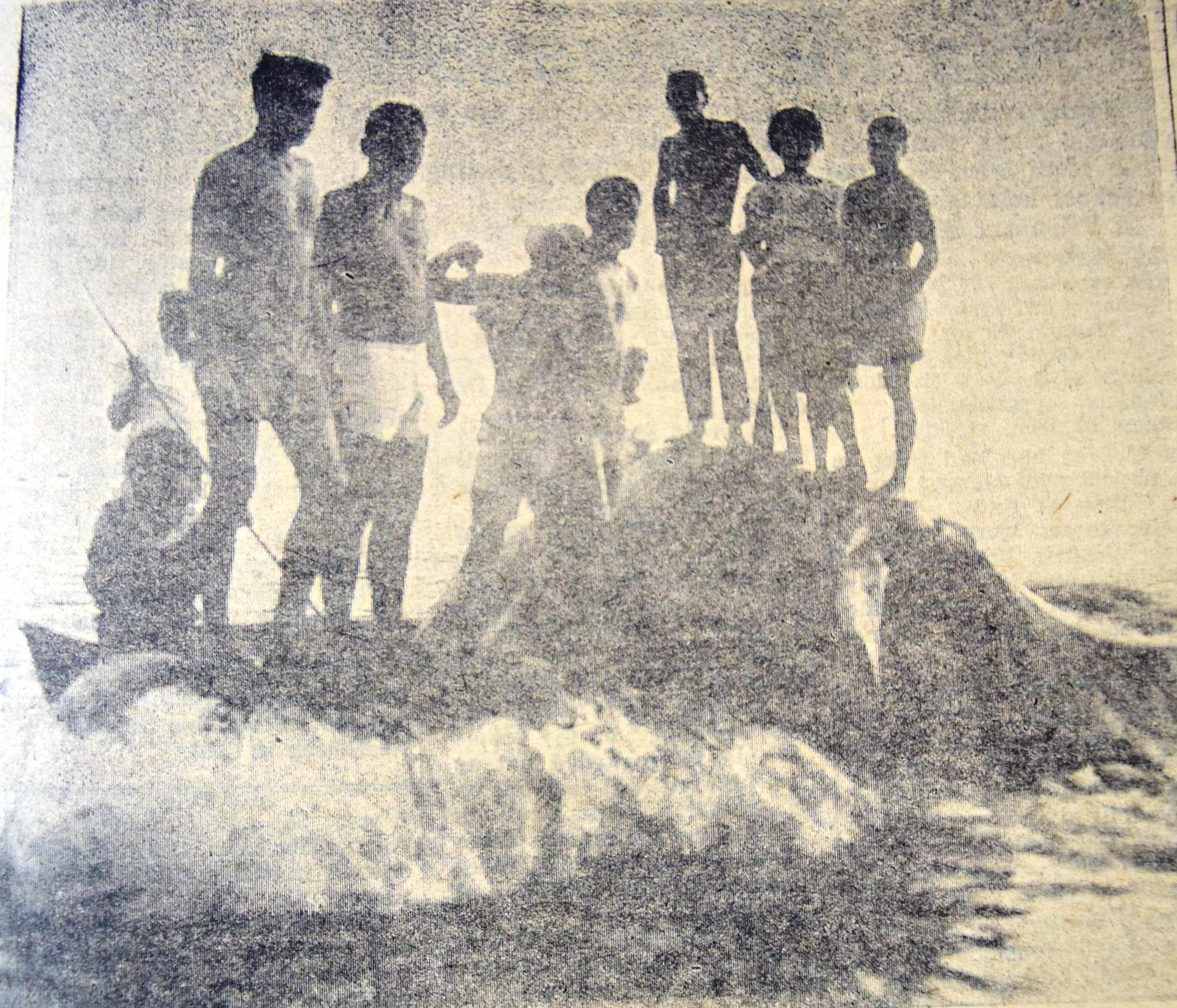ON Tuesday, June 22, 1965, an interesting event happened, a dead whale was found near the main reef at Suva.
It caused a frenzy as Fijians took to the passage just outside of the city to extricate the prized whale’s teeth which is used for traditional iTaukei ceremonies.
An extract from The Fiji Times published on Thursday, June 24 details what occurred on that day.
“A big crowd of people swarmed out to the main reef at Suva near Sandbank Passage at Suva to extricate the teeth of a 60ft whale which ran aground inside the breakers. The giant mammal was discovered by four women and a man while they were on the reef fishing. The women were Marama Ralawa, wife of Ratu Seru Ralawa, Suva’s health administrator, Mrs Sessen, Mere Salawai and Mrs Polly Duthie of Nasese When The Fiji Times reporter visited the scene about 4.30pm on Wednesday, men and women, all iTaukei, were busily digging into the jaw and head of the whale with spades and crowbars and hacking away the blubber with knives and axes. The whale apparently had been dead for some days when it was discovered on Tuesday. Up until Wednesday afternoon, more than 40 teeth (tabua) had been taken from the lower jaw.
Upper jaw down
The people could not get at the upper jaw because this had collapsed to the right, leaving the lower jaw slightly exposed. Marama said that her party usually fished near the place where the whale was found. “Approaching it from a distance, we thought it was a rock,” she said. “But it seemed peculiar because the ‘rock’ had not been there on a previous fishing expedition. “We decided to go investigate.” The group left their punt and on closer examination they noticed the exposed lower jaw and the teeth. Marama said the party managed to obtain 26 tabua before they left. Word spread quickly on Tuesday night and at day break the next day two men braved the cold wind and made a trip to the whale. They were soon joined by more people as the day wore on. “The front teeth were easy to pull out but the back teeth wouldn’t budge,” a young man told the reporter. We soon gave it up as a bad job and though we spent the whole day there we were not rewarded for our work.” The whale is reported to be the first to go aground on the main Suva reef in recent years. An observer said he had lived at Suva since 1929 and he does not remember a similar incident. The whale is believed to have entered through Sandbank Passage during high tide at night. It must have lost its bearings and ended up in shallow water, another observer said.




